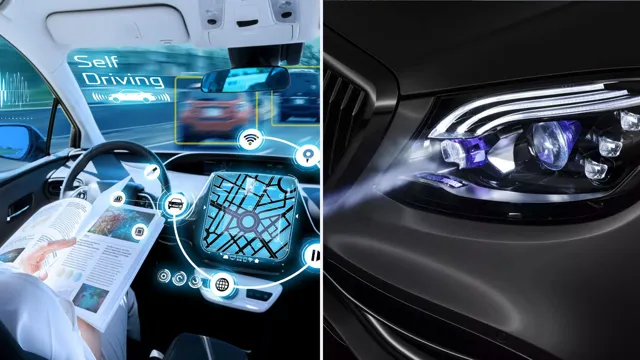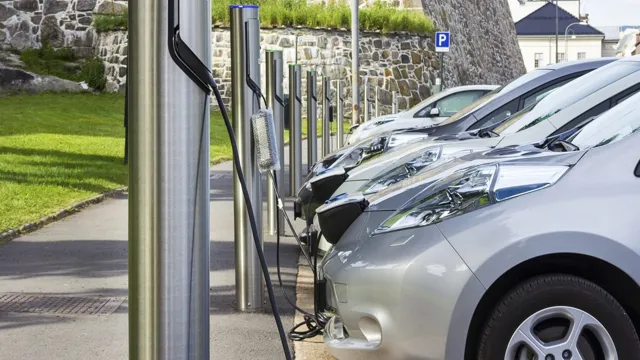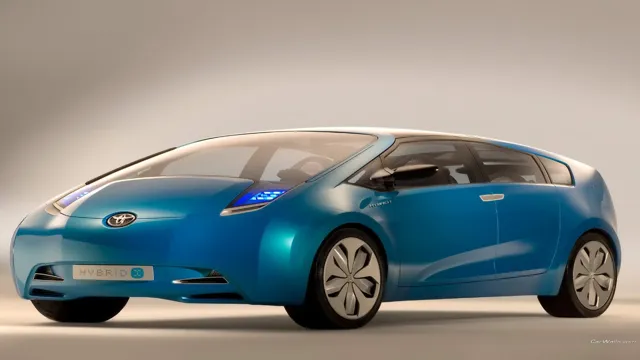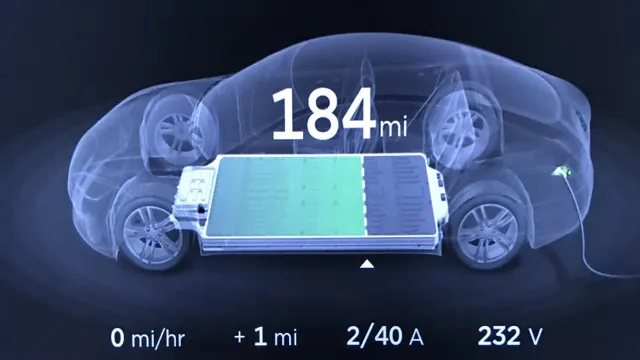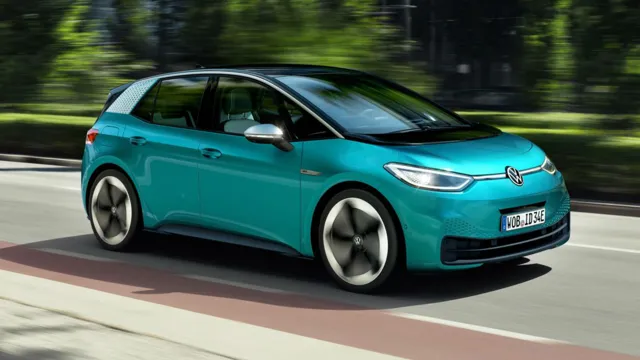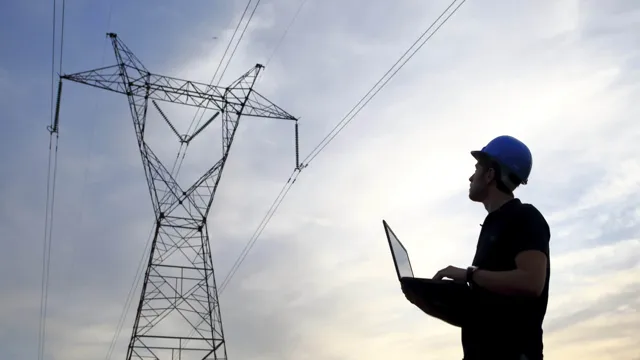Spark of Evolution: Analyzing The Impact of Electric Cars on the Technological Landscape
Electric cars have been causing quite the stir in the automotive industry in recent years. From their sleek designs to their environmental benefits, there are plenty of reasons to consider purchasing an electric vehicle. But have you ever wondered about the impact these cars are having on technology as a whole? It’s a fascinating subject to delve into, as electric cars are not only influencing the way we drive but also the way we think about transportation, energy production, and more.
In this blog post, we’ll explore the many ways in which electric cars are transforming technology, and what that means for the future of innovation.
Reducing the Carbon Footprint
Electric cars have had a significant impact on the technological environment and have played a major role in reducing the carbon footprint. The introduction of electric cars has brought about a revolutionary change in the automotive industry, forcing car manufacturers to shift their focus towards eco-friendly vehicles. With zero emissions, electric cars have brought about a transformation in the way we travel, and have helped in reducing air and noise pollution drastically.
They offer a cleaner and more sustainable mode of transportation that can significantly reduce a country’s carbon footprint. The rise of electric cars has also stimulated the growth of related industries, such as the development of new technology, infrastructure, and renewable energy resources. Consequently, electric cars have not only reduced CO2 emissions but have also impacted the technological environment by promoting innovation, sustainability, and creativity.
Electric Cars Reduce Dependence on Fossil Fuels
Electric cars can significantly reduce our dependence on fossil fuels, which are responsible for a significant portion of carbon emissions and air pollution. By utilizing electric power instead of gasoline, these cars produce zero emissions, and in addition to saving on fuel costs for the driver, also help to reduce our overall carbon footprint. In fact, according to a recent study, electric cars emit 60% less greenhouse gases compared to traditional gas-powered vehicles.
This reduction in emissions can significantly contribute to preserving our planet’s health and combating climate change. Adopting an electric vehicle is an excellent way for individuals to directly contribute to a sustainable future and lead by example for others to follow. By utilizing renewable energy sources and electric vehicles, we can collectively work towards a cleaner, greener, and more sustainable future.
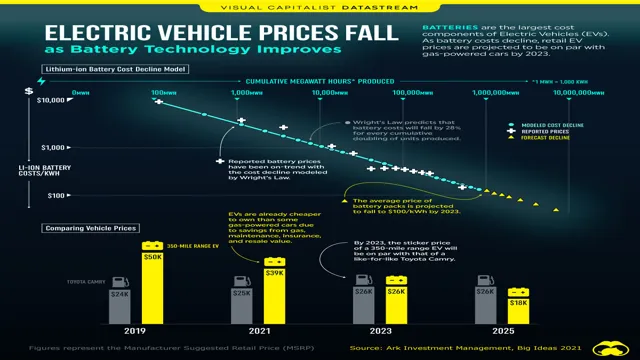
Discovering New Uses for Lithium-ion Batteries
As the world shifts towards renewable energy sources, the importance of lithium-ion batteries has grown exponentially. Not only do they power our cellphones and laptops, but they’re also used in electric vehicles, power grids, and even airplanes. However, as the demand for these batteries rises, so does the need to reduce their carbon footprint.
That’s where new uses for lithium-ion batteries come in. Researchers are finding ways to reuse old batteries, turning them into energy storage systems for homes and businesses. This not only reduces waste but also helps to stabilize the grid by supplying power during peak demand periods.
Another promising avenue is repurposing worn-out batteries for second-life applications, such as stationary energy storage or grid support. Essentially, these batteries still have lots of life left in them, and finding new ways to harness their power will go a long way in reducing our carbon footprint while simultaneously providing more reliable and efficient energy sources.
Technological Advancements
With the advent of electric cars, the technological environment has been transformed in ways that were previously unimaginable. Electric cars have impacted technological advancements by encouraging the development of new and more efficient battery technology. Innovations in battery tech have led to the creation of more durable and long-lasting electric vehicle batteries.
Additionally, electric cars have led to advancements in autonomous driving technology, and equipped cars with an array of sensors to optimize performance and safety. The end result is safer, faster, and more cost-effective transportation that helps protect the environment from the negative effects of climate change. Electric cars have also pushed automakers to adopt new charging infrastructure to accommodate high-capacity electric vehicles, making it easier for consumers to access these vehicles.
All in all, electric cars have had a tremendous impact on advancing technological innovation.
Improvements in Battery Technology
Improvements in Battery Technology have been a game-changer in today’s world. Advancements like graphene batteries have paved the way for more efficient power storage. This technology features high energy density and faster charging time.
Furthermore, researchers have developed lithium-sulfur batteries, which can store five times more energy than lithium-ion batteries commonly used today. With the world growing increasingly dependent on electric vehicles and renewable energy sources, batteries with longer ranges and higher capacities are more important than ever. Innovative research and development will continue to push the boundaries of what batteries are capable of, and it is excellent to see technological advancements in batteries leading the way toward a greener, more sustainable future.
Innovative Charging Stations and Infrastructure
Innovative charging stations and infrastructure are transforming the way we power our vehicles. The latest technological advancements are enabling us to charge our cars faster, more efficiently and conveniently than ever before. From wireless charging pads to fast-charging stations, the options for powering your car are endless.
These innovative solutions leverage powerful technology aimed at making charging as easy as refueling at a gas station. The use of AI and automation in managing charging station networks is a game-changer, allowing them to function better, and keep costs low. This approach creates possibilities for seamless integration with renewable energy systems, so as to help reduce the carbon footprint of the entire electric vehicle ecosystem.
With these technological innovations, electric cars will continue to grow in popularity, resulting in more affordable and convenient ways to power the future.
Growing Demand and Competition Encouraging Innovation
As the demand and competition for various products and services continue to increase, businesses are forced to innovate and stay ahead of the game. Technological advancements have played a significant role in this innovation, providing companies with tools and resources to create better and more efficient products. For instance, improved software and hardware have enabled businesses to automate various processes, leading to increased output and reduced errors.
Moreover, the introduction of new technologies such as artificial intelligence, virtual reality, and Internet of Things, has allowed businesses to offer tailor-made products and services to their customers. These technological advancements have also made it easier for companies to collect and analyze data, helping them make informed decisions based on customer needs and preferences. In today’s competitive business environment, embracing technological advancements is critical for success.
Environmental Impact
The rise of electric cars has had a significant impact on the world’s technological environment, with various far-reaching effects. Firstly, electric cars have led to the development of new technologies, such as more efficient battery technology and the creation of new charging infrastructure. These developments have been vital in making electric cars a viable alternative to traditional combustion-engine cars.
Additionally, electric cars have helped reduce carbon emissions and have led to a cleaner environment. The transition to electric cars has also led to job creation in the manufacturing and maintenance sectors. Lastly, because of the rise of electric cars, other industries such as renewable energy are becoming more viable, leading to a shift towards a cleaner, greener world.
Overall, the impact of electric cars on the technological environment has been profound, and with further advancements and adoption, we can expect these benefits to continue to grow.
Electric Cars Result in Cleaner Air and Reduced Noise Pollution
When it comes to electric cars, the environmental impact is a major selling point. One of the biggest benefits of electric vehicles is the reduction in air pollution. With traditional gas-powered cars, harmful emissions are released into the air, contributing to smog and other health issues.
In contrast, electric cars emit zero tailpipe emissions, resulting in cleaner air for everyone. In addition to helping the environment, this also benefits those who suffer from asthma and other respiratory issues. Electric cars also contribute to reduced noise pollution.
Gas-powered vehicles are notoriously loud, especially in urban areas. With electric cars, the only sound you’ll hear is a quiet hum from the electric motor. This makes for a more peaceful driving experience and reduces noise pollution in our cities.
Overall, the positive impact of electric cars on the environment cannot be overstated. By making the switch to electric, we can all enjoy cleaner air and a quieter, more peaceful driving experience.
The impact of Battery Production on the Environment
Battery production is a complex process that has led to significant environmental impact. The manufacturing of batteries requires disposing of a great amount of waste and energy resources, leading to the emission of greenhouse gases and toxic chemicals into the air, water, and soil. The extraction of minerals such as cobalt, lithium, and nickel for battery production has led to environmental degradation, deforestation, and ecosystem disruption.
Additionally, the disposal of batteries at the end of their lifespan has led to improper waste management and pollution. These environmental impacts have led to concerns over the sustainability and ethical implications of battery production, prompting the search for more eco-friendly and sustainable alternatives. The renewable energy industry has made significant strides in developing technologies that minimize the environmental footprint of battery production, including recycling programs and the use of more sustainable materials.
As consumers, it is our responsibility to consider the environmental impact of the products we purchase and to support companies that prioritize sustainability and minimize their environmental impact.
Future of Electric Cars and Technology
Electric cars have certainly changed the technological environment, shaping the future of transportation. And as technology continues to advance, electric cars are becoming more efficient, environmentally friendly, and affordable. Compared to traditional cars, electric cars reduce our carbon footprint and help mitigate climate change.
In essence, they provide a cleaner and greener way to move around. There has been a burst of innovation in this space, with car manufacturers and startups alike attempting to push the boundaries of what electric cars can do. Batteries are becoming smaller and faster to charge, and mileage per charge is steadily increasing.
However, the future of electric cars is not just limited to the cars themselves. We can also expect to see progress in related industries, such as energy storage and production. As electric cars continue to gain traction and become more popular, expect to see more electric charging stations cropping up in your area.
With time, we may see an entirely energy-efficient transportation system that is built on electricity.
Conclusion
In conclusion, the impact of electric cars on the technological environment has been electrifying! Electric cars have not only revolutionized the automobile industry but have also paved the way for the advancement of other clean energy technologies. The rise of electric cars has brought about significant changes in the energy landscape, ushering us into a new era of sustainable transportation. With increased research and development in this area, the future of electric cars looks bright, promising to turn up the voltage on our technological environment for years to come!”
FAQs
What is the current state of electric cars in the technological environment?
Electric cars have made significant strides in the technological environment, with more advanced batteries and charging infrastructure being developed to support their growth.
What are some of the benefits of electric cars on the technological environment?
Electric cars are more environmentally friendly than traditional gasoline-powered cars and have encouraged innovations in battery and charging technology.
How have electric car manufacturers impacted the technological environment?
Electric car manufacturers have invested heavily in developing new technology to make their cars more efficient and reliable, which has led to the growth of the electric car industry.
What are some of the challenges facing the technological environment as electric cars become more popular?
Challenges include the need for improved infrastructure such as charging stations and increased energy storage capacity to support the energy demand of large numbers of electric cars.
